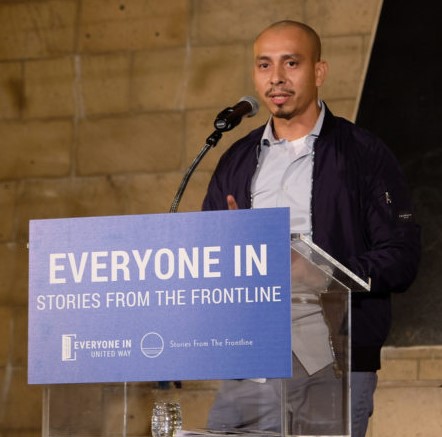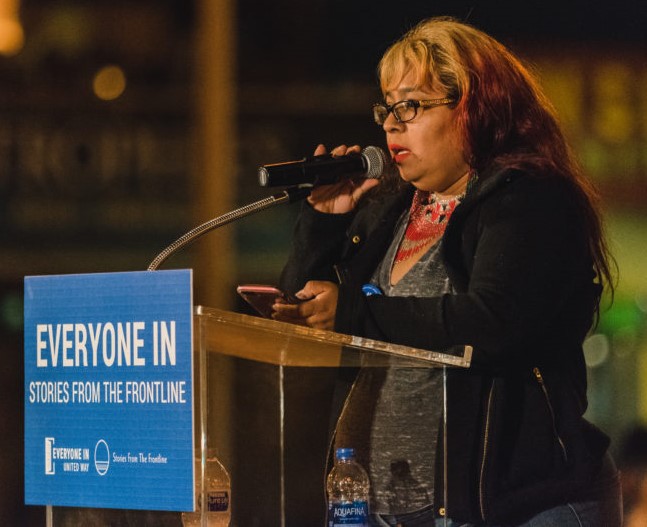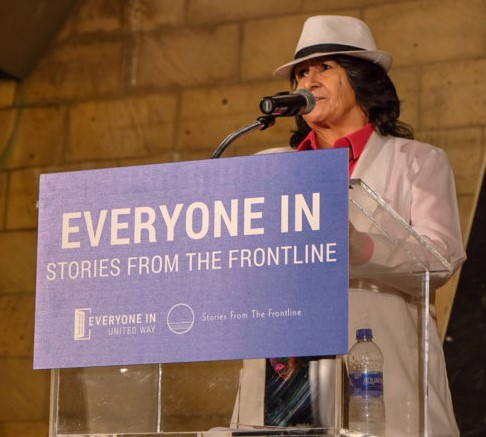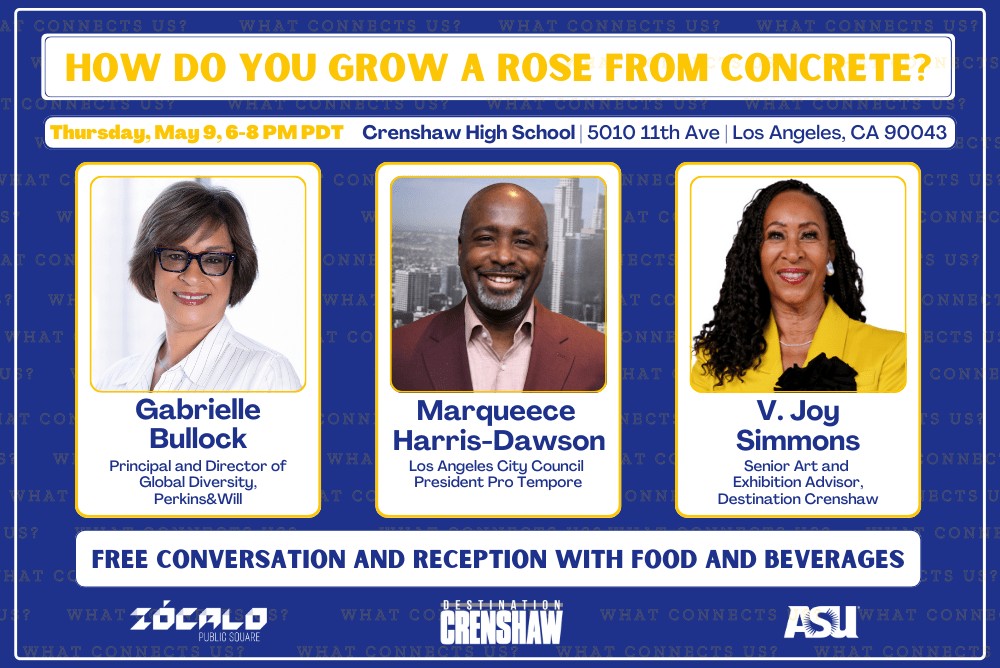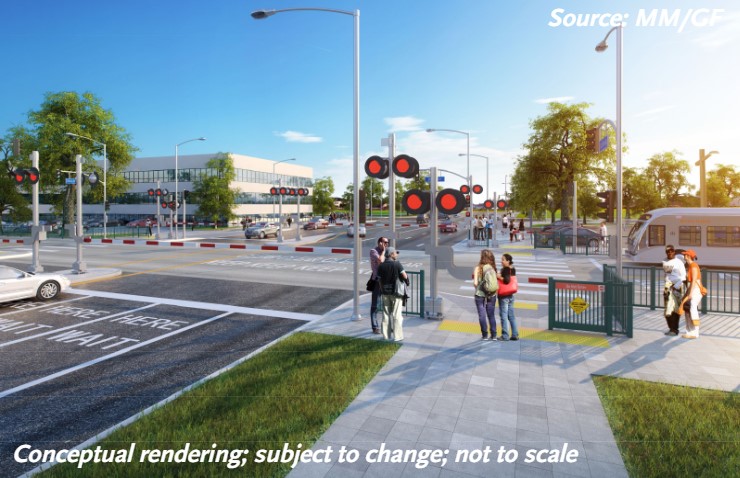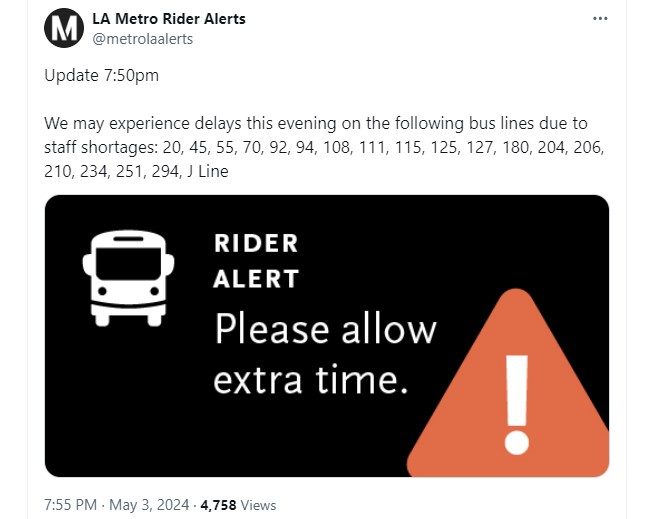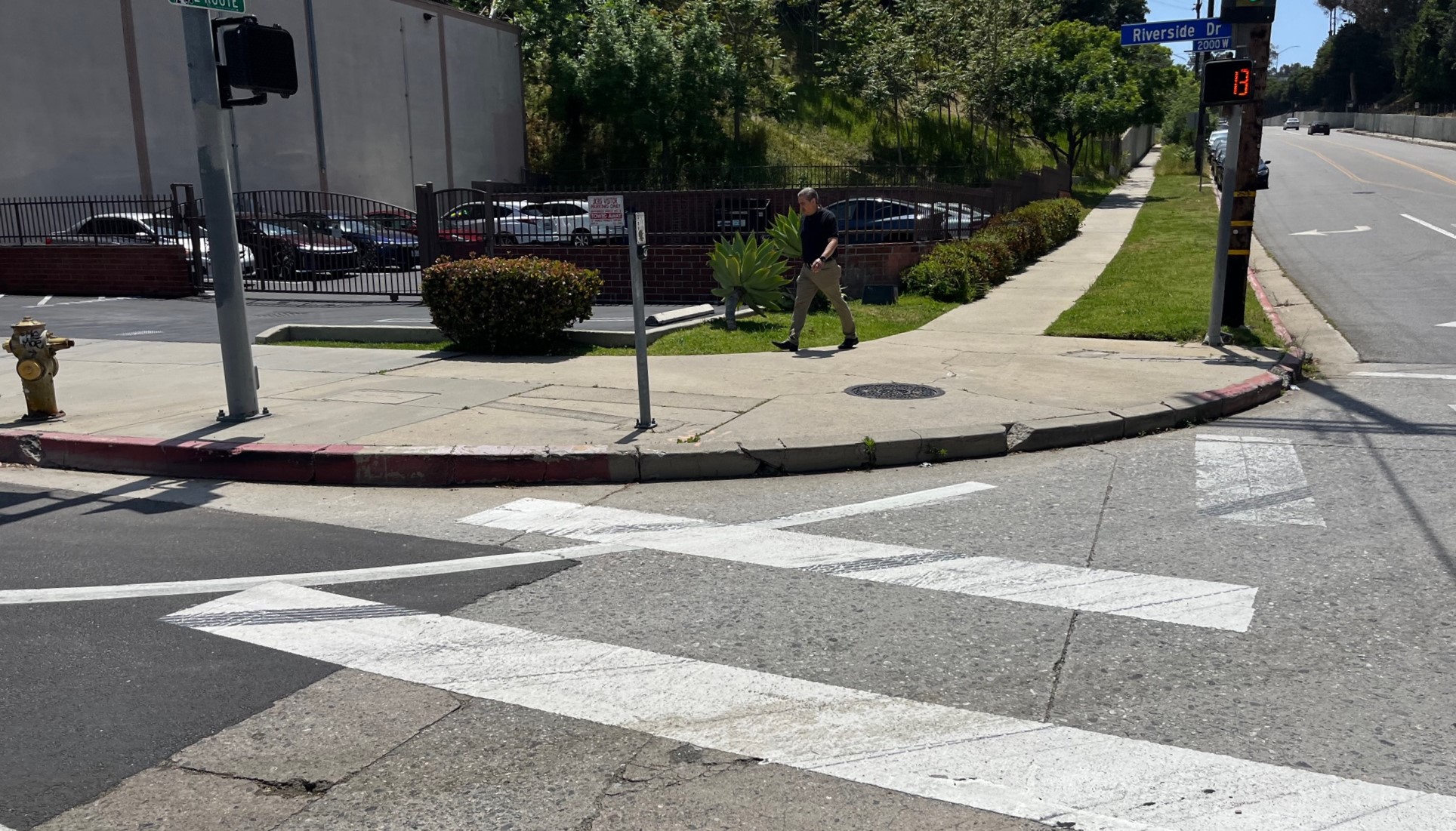People Who Overcame Homelessness Share Their Stories at Boyle Heights Event
6:45 PM PST on November 9, 2018
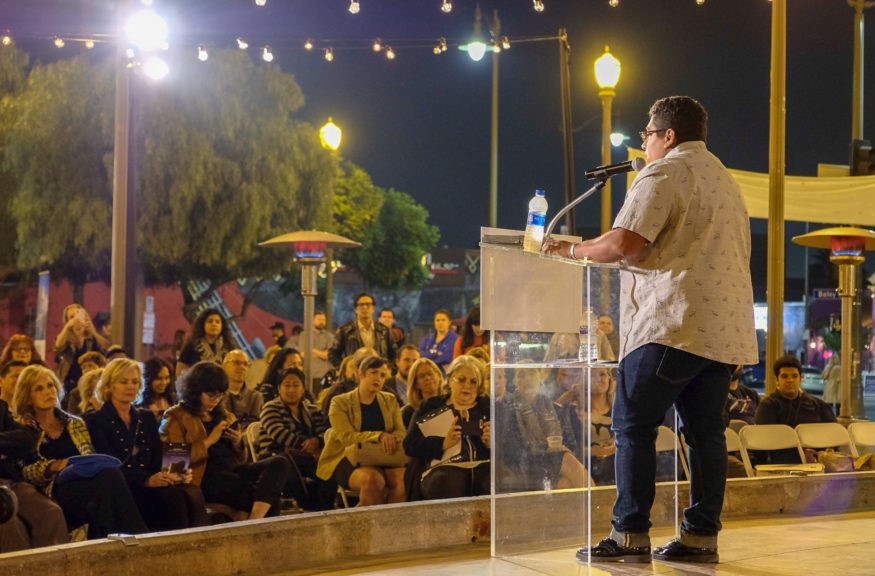
Jaci Cortez speaking at Everyone In: Stories from the Frontline. All photos courtesy Everyone In
Last night, Everyone In: Stories from the Frontline presented a night of individuals telling their personal stories of overcoming homelessness. The event took place at Boyle Heights Mariachi Plaza. More than 200 people came to listen, learn, and get involved.
Peoples' stories varied a great deal, showing that there is a broad range of issues that cause homelessness and a breadth of solutions that support people making their way out of it. If any overarching theme emerged, it was the role community groups play in providing services and developing housing. Many speakers acknowledged key support roles played by Boyle Heights non-profits Jóvenes and East L.A. Community Corporation.
Emcee David Valdez ably backgrounded issues and introduced speakers. He roused the crowd calling, "Is everyone in?" to which the crowd responded, "I'm in!"
Valdez repeatedly emphasized two key components for ending homelessness:
- stable homes people can afford
- coordinated services to help people secure and keep housing
Guest speaker and playwright Josefina López, founder of Casa 0101 Theater, spoke on writing, telling, and sharing one's own story. She has found that her story-sharing bridged gaps between people, as people "realize that other people feel the same pain."
López summed up today's homelessness crisis stating, "We think that homelessness is about a lack of housing - which to some degree it is - but homelessness is also about a crisis in empathy and compassion for others." She urged attendees to listen to your corazón not just your cabeza and to "have the courage to be compassionate."
Formerly homeless foster youth Jaci Cortez is now housed and nearing completion of her Communications Studies at East L.A. College. Cortez acknowledged gratitude for the team at Jóvenes who "invested in me as a human being - that really changed my life." She spoke of how foster care failed to prepare her for life. Foster care sometimes funded clothing and gave incentives for education, but did not help Cortez with the skills needed to succeed in school, to write a check, to pay rent, etc.
Cortez related that Jóvenes supported her with tutoring and addressed her needs beyond the services on their flier. "Jóvenes was the platform, but it was really me learning how to believe in myself."
Cortez emphasized seeing homeless individuals as people and investing in them:
We're all human. We all deserve to have a place to live. We all deserve to be treated well. I'm no different than you. I want to eat. I want to dance, and I want to [have a] home [and] a bed and sleep.
When you see a homeless person, remember: don't give him a dollar to make them go away. Try something different. Be like, "Hey - how are you?" You see them as you see anyone else. I know the smell can be really strong sometimes. [But] you know what you can do, go buy them deodorant - it's not that hard...
You want to make a difference, you become the difference. If you know someone that's homeless or you see someone that's homeless, you give them a hand. And no, I'm not telling you to hold their hand to baby them - just really support them in any way you can.
Johnny Figueroa is a regional coordinator for Jóvenes, working to connect homeless youth with housing. He himself was a homeless youth. That led to incarceration in juvenile hall. When he got out, he stayed with relatives, couch-surfed, and returned to the streets. He shared that he often though about "doing something stupid - something that would get me arrested" to get a roof over his head.
Figueroa got back on his feet staying for three or four months at Jóvenes' emergency shelter. He moved on to transitional housing, where staff helped him get back on track with regard to his education. Figueroa enrolled in a GED program, passed his GED exam, then studied at Pasadena City College. He transferred to Cal State L.A. and graduated in Criminal Justice with a minor in Sociology.
Figueroa concluded by highlighting three important needs to support homeless youth:
- creating affordable housing where youth can live for three to five years - to give youth adequate time to connect with services and education
- using a shared housing model where two youth can live together - to share the cost of living, and to support each other
- having more landlords willing to rent to youth - Figueroa encouraged landlords to consider working with Jóvenes programs, which include incentives
Poet Xavi Moreno shared two spoken word pieces on the past, present, and future of Boyle Heights. It is impossible to do these pieces justice, but one snippet was: "change from the heart of the gente is different from urban planners, city officials, and major developers..."
Community organizer, single mother of five, grandmother of two, Fanny Ortiz was formerly homeless. She expressed gratitude for affordable housing where she lives at the Boyle Hotel, developed by ELACC. Stable housing enabled Ortiz to be active in the community's campaign for redeveloping Metro sites to add affordable and supportive housing. Ortiz concluded by emphasizing the connections between one's housing and one's state of mind: "If I have a house to feel safe, that is how I am going to feel emotionally."
In her native Spanish, street vendor and vending activist Caridad Vásquez told stories of discrimination, overcrowding, rising rents, and her work with ELACC to get the city of L.A. to legalize street vending.
RhondaLynn, formerly homeless, spoke of overcoming her struggles with alcohol. Her drinking led to homelessness, living in a tent in a canyon in Sunland. She connected with friends, sober living services, supportive housing, and got sober, but then relapsed and had to climb out of homelessness again.
"People can make it against all odds - my story proves it," she concluded "...Housing helps me stay sober. Just to have a real bathroom, not the woods, a warm bed, and a shower - things people take for granted. People aren't disposable."
United Way of Greater L.A. President and CEO Elise Buik closed the evening, thanking the amazing storytellers. Buik related that "it takes so much courage to share your stories and to be vulnerable, and it is the way we will change hearts and minds in neighborhoods all throughout Los Angeles County." She encouraged all in attendance to get involved "to give voice to this issue, and voice to people who often don't have a voice."
For more information, including ways to get involved, get training, and/or get notice of future events, visit the websites for the United Way's Everyone In and Stories from the Frontline. The night was sponsored by United Way's Everyone In and the John and Marilyn Wells Family Foundation.
Stay in touch
Sign up for our free newsletter
More from Streetsblog Los Angeles
This Week In Livable Streets
Bike Month continues, Metro 91 Freeway widening, Destination Crenshaw, Culver City Bus, Santa Monica MANGo, Metro bike lockers, Metro Sepulveda Transit, and more
San Fernando Valley Bus/Bike Updates: G Line, Roscoe Bus Lanes, Laurel Canyon Bike Lanes
Short newly protected bike lane on Laurel Canyon Blvd, extensive NSFV bus improvements under construction this month, and scaled-back G Line plans should get that project under construction this summer
No, L.A. City Does Not Always Add Required ADA Ramps During Resurfacing, But They Should
StreetsLA GM Keith Mozee "Any time we do street resurfacing, it is considered an alteration, which requires ADA ramps to be installed."
